Emmett FitzGerald in Orion Magazine:
 LAST YEAR, I watched Orange Sky Day play out on Instagram from a lake on the other side of the country. In a deck chair I scrolled through countless images of the uncanny wildfire sky, with caption after caption reminding me that this dusky light was from the middle of the afternoon. My beleaguered San Francisco Bay Area friends, who had spent the better part of a month trapped inside due to smoke, ventured out of their apartments to document the otherworldliness. At first, I felt lucky not to be at my home in Berkeley. But that feeling was quickly replaced with survivor’s guilt, as I watched my friends suffer while I read a dystopian novel and drank a beer.
LAST YEAR, I watched Orange Sky Day play out on Instagram from a lake on the other side of the country. In a deck chair I scrolled through countless images of the uncanny wildfire sky, with caption after caption reminding me that this dusky light was from the middle of the afternoon. My beleaguered San Francisco Bay Area friends, who had spent the better part of a month trapped inside due to smoke, ventured out of their apartments to document the otherworldliness. At first, I felt lucky not to be at my home in Berkeley. But that feeling was quickly replaced with survivor’s guilt, as I watched my friends suffer while I read a dystopian novel and drank a beer.
I almost didn’t make it to the East Coast last year because of the pandemic, but after a month spent reading articles on airplane ventilation, I decided it was worth the risk to see my family at least once in 2020. I traveled from San Francisco in one of the N95 masks left over from the previous year’s fires and quarantined for a week in my friends’ New York City apartment. Two COVID tests and a borrowed car later, I was hugging my mother in the driveway.
A few days into the visit, I went on a canoe trip with my dad. We paddled a circuit of ponds with quarter-mile carries between them. There have always been loons in the Adirondacks, but on that trip we saw more than I could ever remember. Sometimes it was just a pair, sometimes five to ten of them swimming together in little groups, or “rafts.” Later, Dad and I watched a bald eagle leap from the top of a white pine to snatch a perch from the lake. It rose from the water with the fish in its talons and flapped off toward the sun.
For a brief moment that day I forgot about everything. Not just the pandemic, but about all the other crises that kept me up at night—climate change and ecological collapse. I let my brain overinterpret the loons and eagles as signs not only that these lakes were healthy, but that the whole planet was thriving. The birds were abundant, the air was clear, and for a brief moment, I felt profoundly calm.
More here.

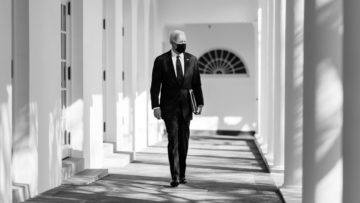 In the past few weeks, the Biden administration’s domestic agenda has come into sharp focus: a bipartisan Senate bill for physical and environmental infrastructure projects nearing passage; new statistics showing that COVID-19 relief has dramatically reduced poverty across demographic groups; an executive order aimed at concentrated market power, promoting competition and worker power; a $3.5 trillion budget proposal with large outlays in social spending, paid for by taxes on the rich and corporations; presidential speeches on behalf of better jobs for Americans at the bottom and middle of the economy. The sum of these and other policies is more ambitious, and more ideologically pointed, than the Biden campaign slogan “Build Back Better.” President Biden is using the resources of the federal government to reverse nearly half a century of growing monopoly, plutocracy, and inequality. Regardless of whether this agenda goes far enough, or whether Congress allows it to go anywhere at all, the administration is pointing the country in a fundamentally new direction.
In the past few weeks, the Biden administration’s domestic agenda has come into sharp focus: a bipartisan Senate bill for physical and environmental infrastructure projects nearing passage; new statistics showing that COVID-19 relief has dramatically reduced poverty across demographic groups; an executive order aimed at concentrated market power, promoting competition and worker power; a $3.5 trillion budget proposal with large outlays in social spending, paid for by taxes on the rich and corporations; presidential speeches on behalf of better jobs for Americans at the bottom and middle of the economy. The sum of these and other policies is more ambitious, and more ideologically pointed, than the Biden campaign slogan “Build Back Better.” President Biden is using the resources of the federal government to reverse nearly half a century of growing monopoly, plutocracy, and inequality. Regardless of whether this agenda goes far enough, or whether Congress allows it to go anywhere at all, the administration is pointing the country in a fundamentally new direction.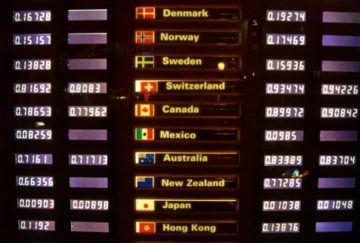 Arjun Jayadev and J.W. Mason in Boston Review:
Arjun Jayadev and J.W. Mason in Boston Review: Virginia Jackson on the late Lauren Berlant, over at Critical Inquiry:
Virginia Jackson on the late Lauren Berlant, over at Critical Inquiry: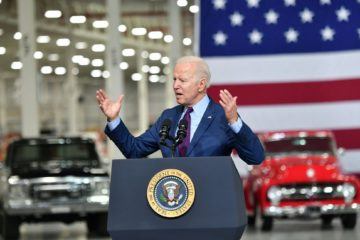 Kate Aronoff in The New Republic:
Kate Aronoff in The New Republic: Aziz Huq in the Los Angeles Review of Books:
Aziz Huq in the Los Angeles Review of Books: A
A Illich was a purveyor of impossible truths, truths so radical that they questioned the very foundations of modern certitudes — progress, economic growth, health, education, mobility. While he was not wrong, we had all been riding on a train going in the opposite direction for so long that it was hard to see how, in any practical sense, the momentum could ever be stalled. And that was his point. Now that “the shadow our future throws” of which Illich warned is darkening the skies of the present, it is time to reconsider his thought.
Illich was a purveyor of impossible truths, truths so radical that they questioned the very foundations of modern certitudes — progress, economic growth, health, education, mobility. While he was not wrong, we had all been riding on a train going in the opposite direction for so long that it was hard to see how, in any practical sense, the momentum could ever be stalled. And that was his point. Now that “the shadow our future throws” of which Illich warned is darkening the skies of the present, it is time to reconsider his thought. For an entire year that involved emergency room visits, legal proceedings, involuntary unemployment and the death of loved ones, Mehran Nazir struggled with a depressive episode. He would find his mind flooded with self-destructive thoughts. He’d faintly hope his plane from Newark to San Francisco would crash or that he would doze off at the wheel of his car and end up in a fatal accident. The normally extroverted Nazir would lie paralyzed in bed for hours doing nothing, not wanting to speak with family and canceling plans with friends. It came to a head when Nazir found himself on the brink of suicide. In his darkest moment, he drafted a will and decided where it would happen.
For an entire year that involved emergency room visits, legal proceedings, involuntary unemployment and the death of loved ones, Mehran Nazir struggled with a depressive episode. He would find his mind flooded with self-destructive thoughts. He’d faintly hope his plane from Newark to San Francisco would crash or that he would doze off at the wheel of his car and end up in a fatal accident. The normally extroverted Nazir would lie paralyzed in bed for hours doing nothing, not wanting to speak with family and canceling plans with friends. It came to a head when Nazir found himself on the brink of suicide. In his darkest moment, he drafted a will and decided where it would happen. There are many variations to Hans Christian Andersen’s classic literary folktale “The Emperor’s New Clothes,” but most have the same basic plot points: A vain emperor is duped by two con men into buying clothes that don’t exist. They trick him by saying that the non-existent fabric is actually visible, but only stupid and incompetent people can’t see it. The emperor pretends that he can see the clothes, and then ordinary people follow his lead — whether because they believe him, or because they are simply afraid to state otherwise. It is only when a child blurts out that he is naked that the illusion is shattered.
There are many variations to Hans Christian Andersen’s classic literary folktale “The Emperor’s New Clothes,” but most have the same basic plot points: A vain emperor is duped by two con men into buying clothes that don’t exist. They trick him by saying that the non-existent fabric is actually visible, but only stupid and incompetent people can’t see it. The emperor pretends that he can see the clothes, and then ordinary people follow his lead — whether because they believe him, or because they are simply afraid to state otherwise. It is only when a child blurts out that he is naked that the illusion is shattered.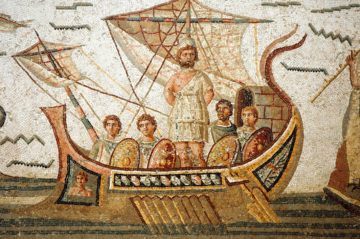 Octavian Report: Why should we read the Odyssey?
Octavian Report: Why should we read the Odyssey?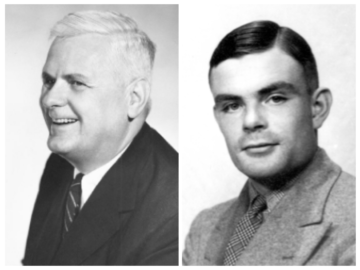 As Soare (2013) recounts,
As Soare (2013) recounts, 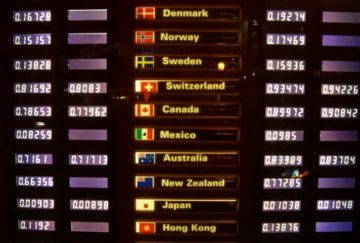 In the wreckage of World War I, it was hard to imagine a return to this borderless “economic Eldorado.” But today, it’s the relatively self-contained national economies of the mid-twentieth century that may seem like a lost world. To access the products of the whole earth, you don’t even have to pick up the phone; you can just log onto Amazon.
In the wreckage of World War I, it was hard to imagine a return to this borderless “economic Eldorado.” But today, it’s the relatively self-contained national economies of the mid-twentieth century that may seem like a lost world. To access the products of the whole earth, you don’t even have to pick up the phone; you can just log onto Amazon.